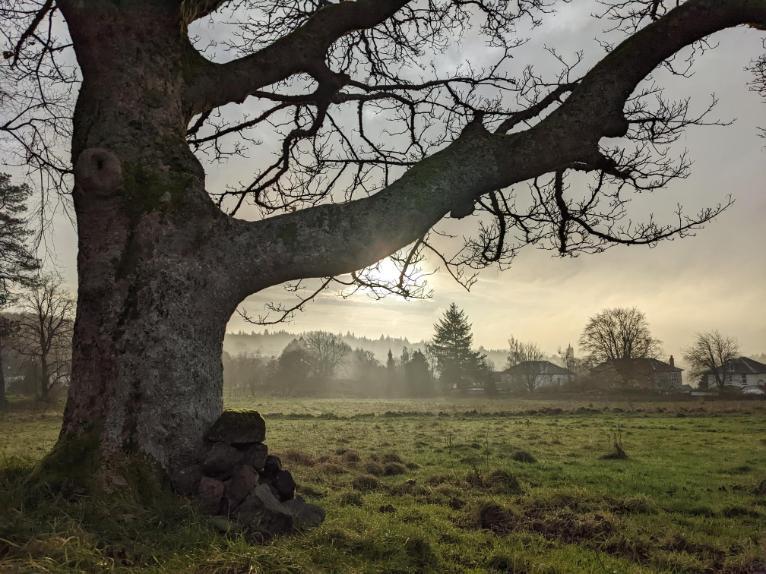Shining a Light on Seasonal Affective Disorder
Published: 21 June 2023
The NHS estimates that about 1 in 15 people experience Seasonal Affective Disorder (SAD), a condition characterised by wintertime low mood, lethargy, social isolation and overeating. Shawn Bodden, researcher in human geography at The University of Glasgow, tells us more about the project.
The NHS estimates that about 1 in 15 people experience Seasonal Affective Disorder (SAD), a condition characterised by wintertime low mood, lethargy, social isolation and overeating. Studies show that the prevalence of SAD is higher further from the Equator, especially in areas like the West of Scotland which experience patterns of high precipitation and cloud cover during the winter months. This makes SAD a geographical as well as a seasonal condition, driven by seasonal changes in our relationships with environments and localities.

In the context of our changing climate, what is of particular concern is the near-future prospect of an increase in SAD-experiences and other forms of mental and emotional distress. While warmer winters are often joked about as climate change’s “silver lining”, they also carry new socio-environmental risks. Rainfall rather than snow can contribute to increased flooding and infrastructural damage. The loss of snow’s reflective quality also leads to a decrease in levels of natural light. Moreover, future winters are not projected to be uniformly warmer so much as less predictable. More extreme and frequent fluctuations in temperature and weather patterns will disrupt the social and cultural activities that bring joy and warmth to many communities during the dark months.

New research on people’s lived experiences of SAD is helping highlight the significance and variety of mental and emotional health risks arising from the climate crisis, and offering insights into how we can build greater capacity for resilience. Over the past winter researchers in Glasgow collaborating with an artist-poet organised a ‘Wintering Well’ workshop series for people who experience SAD. Their aim was to understand personal experiences across the season, and to explore creative ways of inhabiting wintertime. Participants tried all kinds of things: keeping a weekly diary; redesigning home spaces to include a wee “coorie-in”; finding the fun in outdoor exploration; changing old habits and trying new self-care rituals; even drawing-up new visionary plans for a winter-ready city.
Each participant found their own way to re-engage with the dark season. The support and solidarity found in joining a new social community made a big difference for everyone too. There’s an important lesson here when we think ahead to the environmental stresses experienced through climate change and seasonal breakdown. Experiments like Wintering Well show how we can change as communities to cope better together. Much can be gained by listening to those people who are most sensitive to how changes in light, temperature and weather affect our mood.
Helpful online resources will soon be available, including a CBT-module using workshop findings, and a new toolkit to support individuals and communities keen to set up their own Wintering Well group. A public launch event at the University of Glasgow’s Advanced Research Centre (ARC) is set for 28th October 2023 addressing the new mental health challenges of Scotland’s changing climate.
If you would like to attend, have questions or want to engage with ongoing SAD research do email the team: shawn.bodden@glasgow.ac.uk
https://www.gla.ac.uk/research/az/livingwithsad/
First published: 21 June 2023
<< News
View the project website here.

